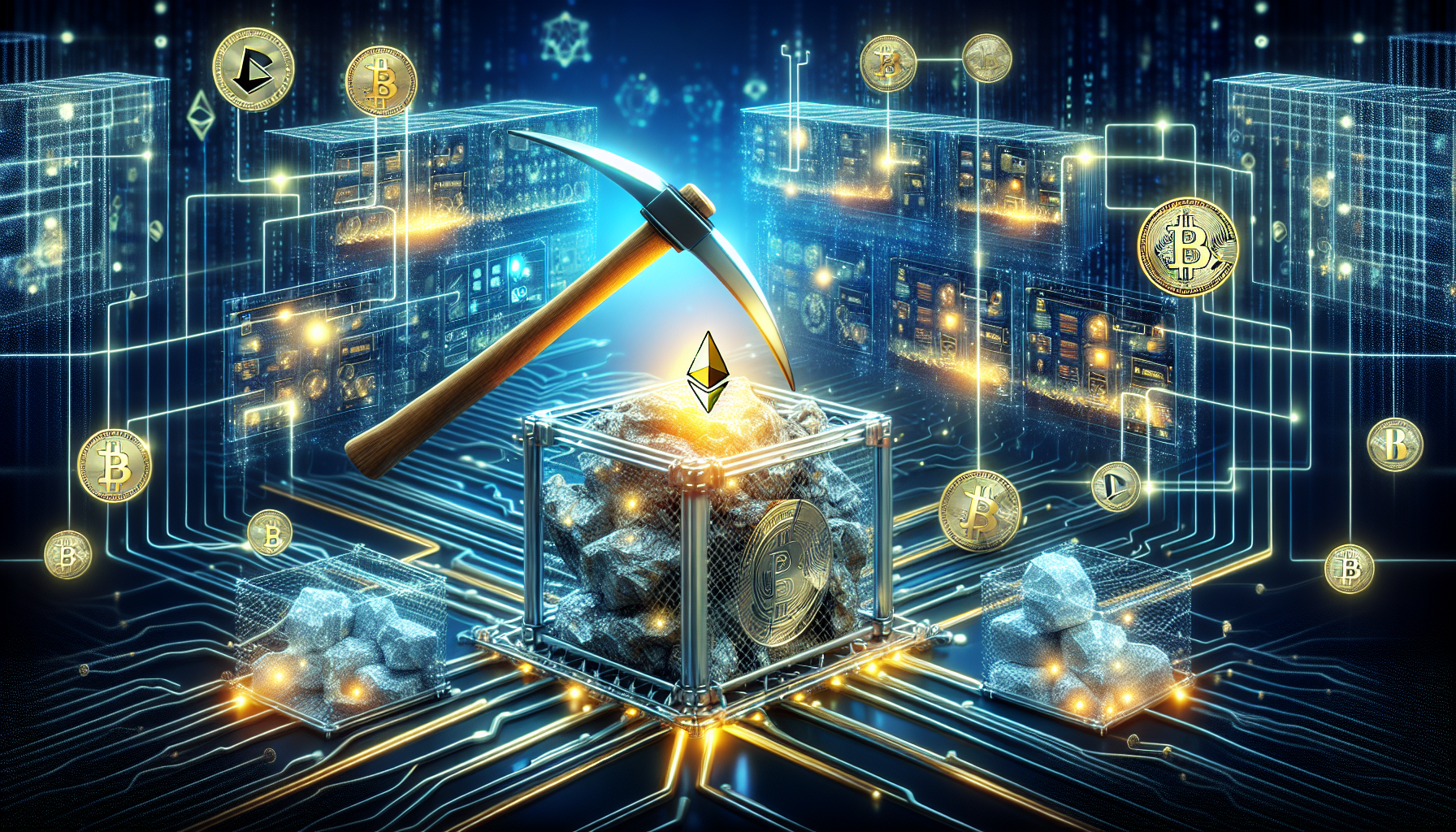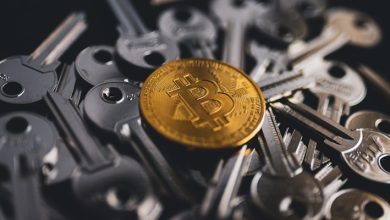What is Cryptocurrency Mining

- Understanding the Basics of Cryptocurrency Mining
- The Process of Generating New Cryptocurrencies
- How Cryptocurrency Mining Secures the Blockchain
- Types of Cryptocurrency Mining Algorithms
- The Role of Miners in the Cryptocurrency Ecosystem
- Challenges and Rewards of Cryptocurrency Mining
Understanding the Basics of Cryptocurrency Mining
Cryptocurrency mining is the process of validating transactions on a blockchain network by solving complex mathematical problems using computer hardware. This process helps secure the network and ensures the integrity of transactions. Miners are rewarded with newly minted coins for their efforts in verifying transactions.
One of the key components of cryptocurrency mining is the use of specialized hardware, such as ASICs (Application-Specific Integrated Circuits) or GPUs (Graphics Processing Units). These devices are designed to perform the necessary calculations quickly and efficiently, increasing the chances of successfully mining a block and earning a reward.
Miners also need to consider the cost of electricity and cooling for their mining operations, as the process can be energy-intensive and generate a significant amount of heat. It’s essential to calculate the potential profitability of mining based on these factors before investing in hardware and starting a mining operation.
The Process of Generating New Cryptocurrencies
The process of creating new cryptocurrencies, also known as cryptocurrency mining, involves solving complex mathematical problems using computer hardware. This process requires a significant amount of computational power and energy. Miners compete to be the first to solve these problems and add a new block to the blockchain, which is a decentralized ledger that records all transactions.
Cryptocurrency mining is essential for maintaining the security and integrity of the blockchain network. Miners are rewarded with newly minted coins for their efforts in solving these mathematical problems. This process also helps to verify transactions and prevent double-spending.
To start mining cryptocurrencies, miners need specialized hardware, such as ASICs (Application-Specific Integrated Circuits) or GPUs (Graphics Processing Units). They also need to join a mining pool, which is a group of miners who work together to increase their chances of solving the mathematical problems and earning rewards.
Once a new block is added to the blockchain, it is verified by other nodes on the network to ensure its validity. If the majority of nodes agree that the block is valid, it is added to the blockchain, and the miners receive their rewards. This process continues, with new blocks being added to the blockchain approximately every 10 minutes.
Overall, cryptocurrency mining is a complex and competitive process that plays a crucial role in the creation and maintenance of cryptocurrencies. It requires significant resources and expertise, but it can be a lucrative endeavor for those who are willing to invest the time and effort.
How Cryptocurrency Mining Secures the Blockchain
Cryptocurrency mining plays a crucial role in securing the blockchain network. Miners are responsible for validating transactions and adding them to the blockchain ledger. This process involves solving complex mathematical puzzles using computational power. The first miner to solve the puzzle gets the opportunity to add a new block to the blockchain and is rewarded with newly minted coins.
By participating in the mining process, miners help maintain the integrity and security of the blockchain. Each block added to the chain contains a cryptographic hash of the previous block, creating a secure and tamper-proof record of transactions. This makes it extremely difficult for malicious actors to alter the transaction history or double-spend coins.
Furthermore, the decentralized nature of cryptocurrency mining ensures that no single entity has control over the network. This distributed consensus mechanism prevents censorship, fraud, and other malicious activities. Miners compete with each other to validate transactions, which helps maintain the transparency and trustworthiness of the blockchain.
Types of Cryptocurrency Mining Algorithms
Cryptocurrency mining algorithms are the backbone of the blockchain network, ensuring transactions are verified and added to the public ledger. There are several types of algorithms used in cryptocurrency mining, each with its own unique characteristics and requirements.
- SHA-256: This algorithm is used by Bitcoin and several other cryptocurrencies. It is known for its high level of security and computational complexity, making it difficult for hackers to manipulate the blockchain.
- Scrypt: Popular among altcoins like Litecoin, Scrypt is designed to be more memory-intensive than SHA-256, making it less susceptible to ASIC mining.
- X11: This algorithm uses a sequence of 11 different hashing functions, providing a more energy-efficient and secure mining process. Dash is one of the cryptocurrencies that utilize the X11 algorithm.
- CryptoNight: Used by Monero and other privacy-focused cryptocurrencies, CryptoNight is designed to be ASIC-resistant, allowing for more decentralized mining.
- Equihash: Known for its memory-hardness, Equihash is used by Zcash and other cryptocurrencies to prevent ASIC mining and promote a fair distribution of rewards.
Each mining algorithm has its own set of pros and cons, influencing factors such as security, decentralization, energy efficiency, and accessibility. Miners choose the algorithm that best aligns with their goals and resources to participate in the cryptocurrency network and earn rewards for their efforts.
The Role of Miners in the Cryptocurrency Ecosystem
Cryptocurrency miners play a crucial role in the ecosystem by validating transactions and securing the network. Miners use powerful computers to solve complex mathematical puzzles that confirm transactions on the blockchain. This process requires a significant amount of computational power and energy.
Miners are rewarded with newly minted coins for their efforts in securing the network. This reward serves as an incentive for miners to continue validating transactions and maintaining the integrity of the blockchain. Without miners, the cryptocurrency ecosystem would be vulnerable to attacks and fraudulent activities.
As more miners join the network, the difficulty of mining increases, requiring more computational power to solve the puzzles. This competition among miners ensures the security and decentralization of the network. Miners also play a role in governing the network by participating in consensus mechanisms such as proof of work or proof of stake.
Overall, miners are essential to the functioning of the cryptocurrency ecosystem. Their work ensures the security, integrity, and decentralization of the network, making cryptocurrencies a viable alternative to traditional financial systems.
Challenges and Rewards of Cryptocurrency Mining
Cryptocurrency mining can be a lucrative endeavor, but it also comes with its fair share of challenges and rewards. One of the main challenges of cryptocurrency mining is the high level of competition in the market. With more and more miners joining the network, it can be difficult to mine new coins and generate profits. Additionally, the cost of mining equipment and electricity can be significant, cutting into potential earnings.
On the other hand, the rewards of cryptocurrency mining can be substantial. Miners have the opportunity to earn new coins as a reward for verifying transactions and securing the network. These coins can then be held as an investment or sold for a profit. Additionally, mining can provide a sense of satisfaction and accomplishment as miners contribute to the decentralized nature of cryptocurrencies.
Another challenge of cryptocurrency mining is the technical expertise required to set up and maintain mining rigs. Miners need to have a good understanding of computer hardware, software, and networking to be successful. They also need to stay up-to-date on the latest developments in the industry to remain competitive.
Despite these challenges, the rewards of cryptocurrency mining can make it all worthwhile. In addition to the potential for financial gain, mining can also provide a sense of community and camaraderie among miners. Many miners join mining pools to combine their resources and increase their chances of earning rewards. Overall, cryptocurrency mining can be a challenging but rewarding endeavor for those willing to put in the time and effort.




